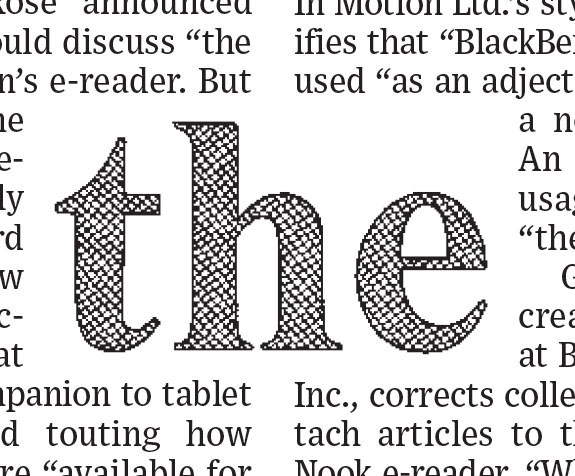A Rutgers–Camden professor says the three-letter word we use regularly before nouns isn’t really necessary. It’s just one of the characteristics of the English language.
“Many sentences would be totally understandable if you were to omit the from them, but it wouldn’t sound like English,” says Richard Epstein, an associate professor of linguistics at Rutgers–Camden. “I think what’s more interesting is that if the isn’t used, people start to think you sound like a caveman, but the truth is, most languages don’t have such words.”

So, what’s the point?
Epstein is studying the origins of the in modern English. An expert in the semantics, pragmatics, and discourse structures of English, medieval French and Kumeyaay (a Native American language), the Rutgers–Camden scholar says the came from a word meaning that.
“For the most part, the meaning of the is redundant, so most languages don’t need it or use it,” Epstein says. “If I tell you about a book I read, and then later say, ‘Book was interesting,’ it’s pretty clear to you that I mean the book we were talking about. The rule of English is that you have to insert the article, but in Old English it wasn’t necessary.”
Epstein says the doesn’t show up in Old English texts, but through his research, he can trace the origins of the word by finding similar uses of that in texts like Beowulf.
“We’ve heard many foreigners omit the when speaking English, and it’s become a kind of stereotype, but it’s not incorrect in their own native languages,” Epstein says. "It’s just that they don’t have articles in their own languages.”
Epstein notes that every language is full of redundancies. For example, other languages don’t use verb tenses as English uses them.
“But other languages also have redundancies that English does not have. Language is complicated,” he says.
A Haddonfield resident, Epstein has published research papers on the definite article in some of the earliest Old English texts; he is also translating old French texts that have never been translated, such as literary and legal documents.
Media Contact: Ed Moorhouse
(856) 225-6759
E-mail: ejmoor@camden.rutgers.edu